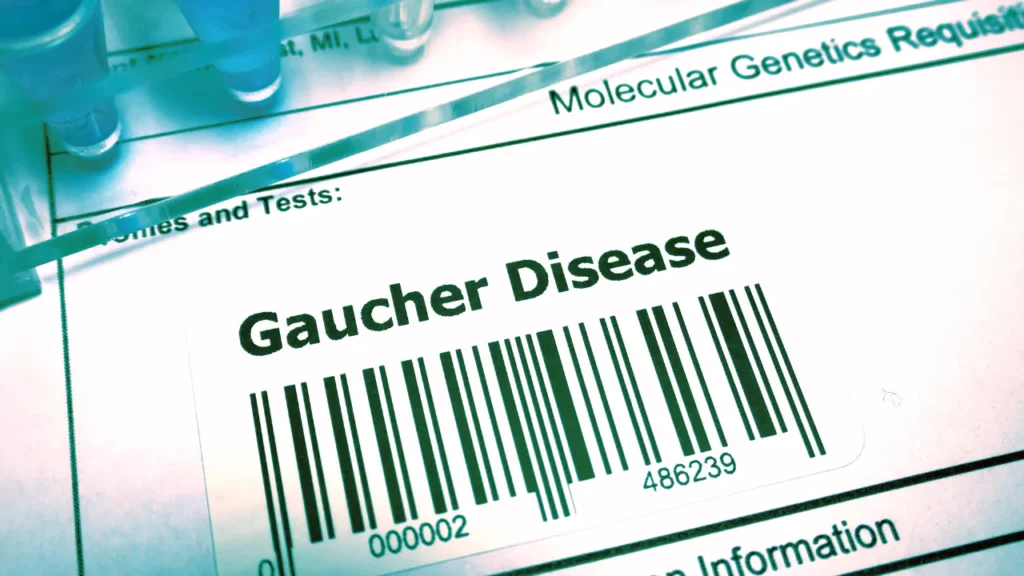Mitochondrial DNA (mtDNA) plays a critical role in our bodies. Unlike the DNA in our cell nuclei, mtDNA exists in the mitochondria, those tiny powerhouses within our cells that produce the energy we need to live.
What’s fascinating about mtDNA is its unique inheritance pattern and its critical role in energy production, separate from the bulk of our genetic material.
Why focus on mtDNA, especially in the context of cancer? Well, as we’re learning, mtDNA’s role goes beyond energy production.
Changes in mtDNA can affect how cells grow, how they behave, and, importantly, how they might contribute to the development of diseases, including cancer.
Understanding this tiny genetic component could unlock new ways to diagnose, monitor, and treat cancer, offering hope to millions affected by the disease worldwide.
Key Takeaways
- Mitochondrial DNA plays a crucial role in the development and progression of cancer.
- Mutations in mtDNA can serve as biomarkers for the early detection and monitoring of cancer.
- Targeting mitochondrial dysfunction presents a promising avenue for cancer therapy.
Understanding Mitochondrial DNA
mtDNA is smaller, circular, and contains 37 genes, all essential for the mitochondria’s function: to generate energy.
Every cell can have hundreds to thousands of mitochondria, and consequently, multiple copies of mtDNA.
This DNA is crucial for making the proteins needed in the energy production process. Without properly functioning mtDNA, our cells would struggle to produce energy, leading to a host of problems.
Mitochondrial Biogenesis and Mutation Rate
Mitochondria have their own lifecycle within our cells.
They grow, divide, and are removed when not functioning correctly, a process known as mitochondrial biogenesis.
This process is tightly controlled because it’s crucial for cell health.
mtDNA is known for its high mutation rate, much higher than the DNA in our cell nuclei.
This is partly because of its close proximity to where energy production occurs, exposing it to free radicals that can cause damage.
While most mitochondrial mutations are harmless or corrected, some such as deletions can lead to significant issues, including cancer.
The Role of Mitochondrial DNA in Cancer
mtDNA Mutations and Cancer Initiation
When mtDNA mutates, it can alter how mitochondria function.
In some cases, these mutations contribute to the initiation and progression of cancer.
They can make cells grow uncontrollably or resist natural death, two hallmarks of cancer cells.
What’s particularly intriguing is that mtDNA mutations can influence the cell’s metabolism, supporting the cancerous cells’ needs.
As researchers, we’re only beginning to understand the depth of mtDNA’s involvement in cancer, but it’s clear that these mutations play a key role.
Metabolic Shifts in Cancer Cells
Cancer cells don’t behave like normal cells; one of their quirks is how they produce energy.
Normally, cells use oxygen in a process called oxidative phosphorylation, happening in mitochondria.
Cancer cells often rely more on glycolysis, a less efficient energy production method that doesn’t need oxygen, known as the Warburg effect. This shift helps cancer cells survive in less-than-ideal conditions.
mtDNA mutations can influence this shift, supporting the cancer cells’ growth and survival.
Mitochondrial Dysfunction and Tumor Microenvironment
Mitochondrial dysfunction doesn’t just affect the cancer cell; it alters the tumor’s entire environment.
For example, it can promote angiogenesis, the formation of new blood vessels, which provides the tumor with nutrients and oxygen.
It can also affect how the immune system interacts with the tumor, sometimes helping the tumor evade immune detection.
This complex interaction between mitochondrial function, the tumor, and the body’s response is a critical area of cancer research.
Understanding it could lead to novel treatments targeting these processes.
The more we learn about mtDNA, the more we realize how much more there is to understand. But every discovery brings us closer to new ways to fight cancer.
Diagnosing and Monitoring Cancer Through mtDNA
Biomarkers for Cancer Detection
The idea that mitochondrial DNA (mtDNA) mutations could serve as early warning signals for cancer is gaining traction.
mtDNA, with its high mutation rate compared to nuclear DNA, might seem like an odd choice for this role. Yet, it’s precisely this characteristic that offers unique opportunities for early cancer detection.
Cancer cells undergo numerous genetic changes, including mutations in mtDNA, which can lead to alterations in mitochondrial function.
These mutations can occur early in the development of cancer, making them potential early indicators of the disease.
Detecting these mutations could allow for the diagnosis of cancer well before traditional symptoms appear or before it becomes detectable with current screening methods.
Monitoring Disease Progression and Treatment Response
Beyond early detection, mtDNA mutations also offer a window into the progression of cancer and the effectiveness of treatments.
As cancer evolves, the mtDNA mutation profile can change, providing insights into the state of the disease.
Monitoring these changes over time could help doctors adjust treatment plans in real-time, tailoring them to the current state of cancer.
For example, a decrease in specific mtDNA mutations could indicate that a treatment is effective, while an increase or the appearance of new mutations could signal resistance to the current therapy.
This approach to monitoring could make cancer treatment more responsive and personalized, potentially improving outcomes for patients.
Therapeutic Approaches Targeting Mitochondrial DNA
Strategies to Correct mtDNA Mutations
One of the more futuristic-sounding approaches to cancer treatment involves correcting or compensating for mtDNA mutations directly within cancer cells.
The idea is that by fixing these mutations, we can restore normal mitochondrial function to cancer cells, potentially reducing their ability to grow and spread.
This approach is still in its infancy, with significant technical hurdles to overcome.
Delivering corrective molecules or gene editing tools specifically to mitochondria within cancer cells is a major challenge.
However, research in this area is progressing, and the potential rewards are high. Correcting mtDNA mutations could lead to entirely new types of cancer treatments that target the disease at its source.
Targeting Mitochondrial Metabolism in Cancer Therapy
Another promising area of research focuses on targeting the unique metabolic needs of cancer cells.
Cancer cells often rely on altered metabolic pathways to fuel their rapid growth. By targeting these pathways, which are regulated in part by mtDNA, we can potentially starve cancer cells of the energy they need to grow.
Drugs and interventions designed to disrupt mitochondrial metabolism in cancer cells are being actively researched.
Some of these approaches aim to inhibit the enzymes involved in these altered metabolic pathways, while others seek to enhance the normal metabolic functions of mitochondria to outcompete the cancer cells.
The complexity of mitochondrial metabolism means that this is a challenging area of research.
Final Thoughts
The study of mitochondrial DNA in the context of cancer is at the forefront of some of the most exciting developments in cancer research and treatment.
From early detection and monitoring of the disease to the development of targeted therapies, there is potential in mtDNA research.
As we continue to explore the complex relationship between mtDNA and cancer, it’s clear that these tiny genetic elements could hold the key to significant advances in the fight against this devastating disease.
FAQs
Can mtDNA mutations be inherited?
Yes, mtDNA mutations can be inherited and passed down from mother to offspring. This inheritance pattern means that mtDNA mutations can influence cancer risk across generations, potentially identifying individuals at higher risk.
How can studying mtDNA help in cancer treatment?
Studying mtDNA can lead to breakthroughs in cancer treatment by identifying unique mutations for early detection, monitoring treatment responses, and developing targeted therapies that correct or exploit these mutations for therapeutic benefit.
Are there any current treatments targeting mtDNA in cancer patients?
Currently, there are no treatments specifically targeting mtDNA in cancer patients. However, research is underway to develop therapies that target mitochondrial dysfunction, aiming to disrupt the metabolic processes cancer cells depend on.
What are the challenges in using mtDNA as a target for cancer therapy?
Targeting mtDNA in cancer therapy presents challenges, including delivering therapies directly to mitochondria, avoiding unintended effects on healthy cells, and navigating ethical considerations related to genetic modifications.
For Further Reading:
- Mitochondrial DNA variation and cancer – Nature Reviews Cancer
- Role of mitochondrial alterations in human cancer progression and cancer immunity – Journal of Biomedical Science
- Mitochondrial DNA in cancer: small genome, big impact – Cancer Research UK – Cancer News
- Functional Role of Mitochondrial DNA in Cancer Progression – International Journal of Molecular Sciences
- Mitochondria in cancer: in the aspects of tumorigenesis and targeted therapy – Carcinogenesis
- Role of mitochondrial dysfunction in cancer progression – Exp Biol Med
- The Significance of Mitochondrial Dysfunction in Cancer – Int J Mol Sci
- Mitochondrial dynamics and cancer: Mitochondrial fission and fusion in tumorigenesis – Cancer Letters

Dr. Sumeet is a seasoned geneticist turned wellness educator and successful financial blogger. GenesWellness.com, leverages his rich academic background and passion for sharing knowledge online to demystify the role of genetics in wellness. His work is globally published and he is quoted on top health platforms like Medical News Today, Healthline, MDLinx, Verywell Mind, NCOA, and more. Using his unique mix of genetics expertise and digital fluency, Dr. Sumeet inspires readers toward healthier, more informed lifestyles.





